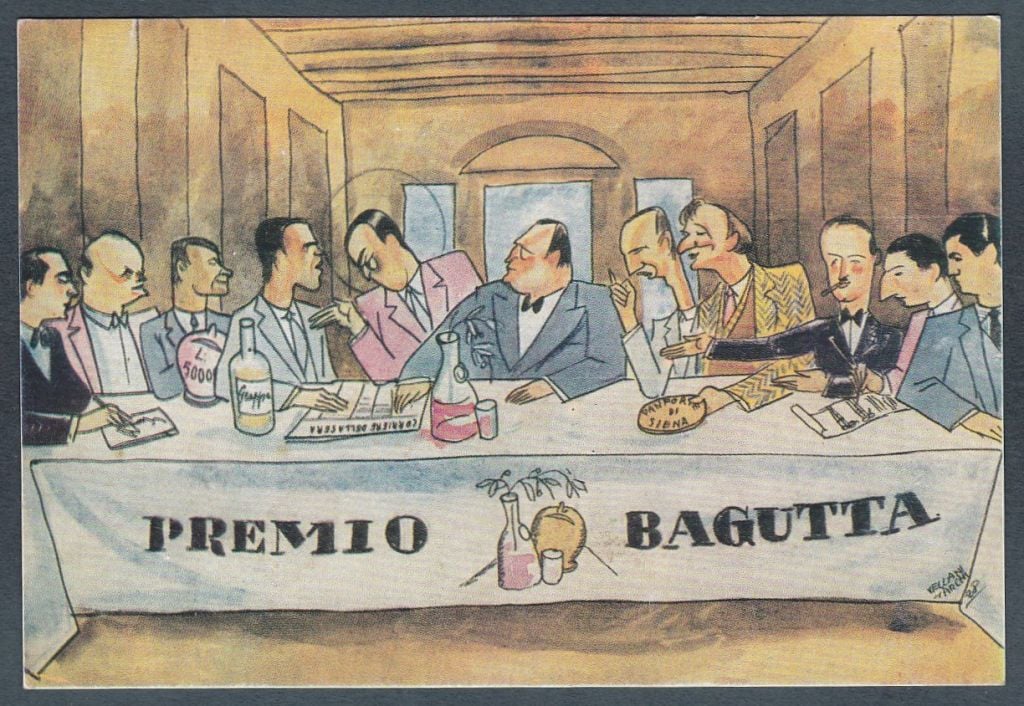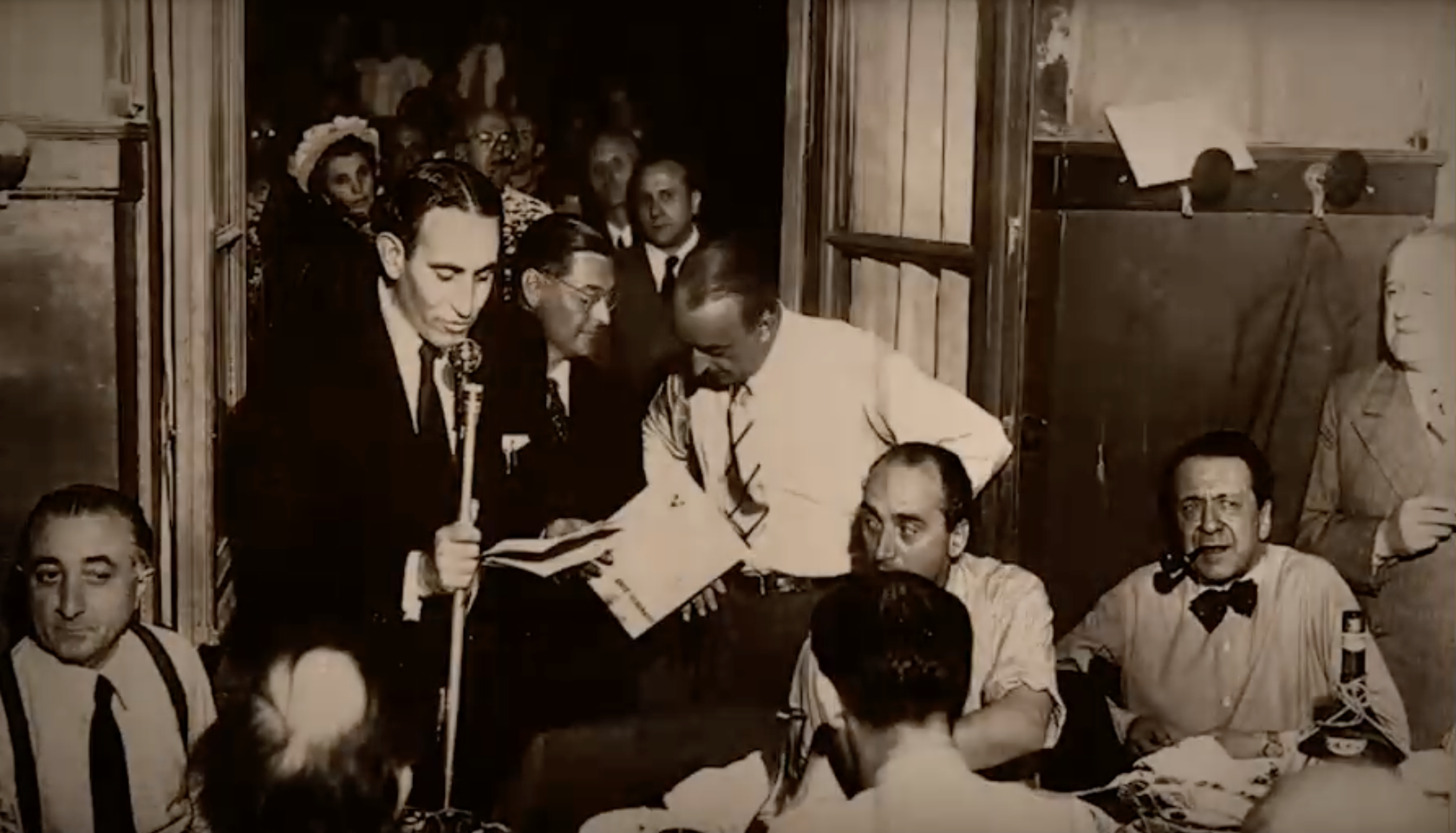«It was magical. As a kid I was mesmerized entering in Trattoria Bagutta and be surrounded by the people I used to see on television. You could breathe culture». Eyes veiled by memories, voice trembling with emotion. Michele Spini remembers what the atmosphere was like in the restaurant of his grandparents, Giulia Michi and Alberto Pepori. Bagutta was not just a restaurant, it was a hub for writers and journalists in 1920s Milan. «Primo Levi, Emilio Gadda, Giuseppe Arbasino, Giuseppe Novello, Arturo Toscanini… These are just a few of the literati who passed through Trattoria Bagutta, which became central to Milan’s cultural scene»
Intellectuals have always played a decisive and fascinating role in portraying the history of Italy. And if the French existentialists had the café de Flore, our country today has more than a hundred historic lit cafes. From Pasticceria Pirona in Trieste where James Joyce wrote the Ulysses to Caffè Gilli in Florence where Marinetti, Soffici and Boccioni met. And Milan, of course. With Jamaica bar in the artistic district of Brera or the historic Cova café.
Not only coffee, cultural salons also took place over a good dish of ragù. The “ragù-Bagutta”, was the main dish at the Trattoria and was also Michele’s favourite «I loved rigatoni alla Bagutta. They were made with meat sauce, peas and cream: unforgettable». But the “alla buona” cuisine (modest and simple) also attracted intellectuals. One of these was Orio Vergani, a journalist from Corriere della Sera. One evening he was late for a dinner with some colleagues and other writers and had to pay a “fine” of 100 liras. Hence the idea of establishing a literary prize.

Every time someone was late or missed dinner the prize would grow. Up until 1927, the Bagutta Prize, the very first literary prize in Italy, was established by «two journalists, two painters, a lawyer, a playwright, three men of letters and a dandy». Riccardo Bacchelli, Orio Vergani e Mario Vellani Marchi were the most famous names among the founders. To this day, once a year the Prize is awarded.
«What differentiates Premio Bagutta from other major Italian literary prizes – explains the director of the prize Isabella Bossi Fedrigotti – is that it interests only the authors and the little editors, since it is not a prize that sells copies.» And that means no pressure for the publisher. Jury members nominate books that they have discovered and read for themselves; books they really loved and want to recommend. In fact, the jurors can make their decisions comfortably and without external bonds or pressure. And this is possible because, as in the 1920, «our monthly meetings are convivial: we meet at lunchtime and eat together».

However, one thing has sadly changed. «In the very beginnings» says Fredigotti «the average age of the jurors was 26. Now, they are, to be optimistic, around 6o». A gap, described by the director of the historic prize, that is difficult to bridge because to do so you have to live Milan, breathe its cultural and social moods. This is difficult today when new generations are increasingly leaving Milan in search of better working conditions. And, last but not least, «you have to have time to read a ton of books» Fedrigotti concludes.
But back in the day, Bagutta was much more than a restaurant or a literary prize: it was also a place of entertainment. «Mario Soldati used to join a large table of intellectuals, and would spend a couple of hours chatting with them. Then he would move to another table to play scopa with my brother-in-law and other friends of his. And I’ll tell you, he wouldn’t leave until he won at least one game», says Pierluigi Spini, Felicita Pepori’s husband and Michele’s father in the documentary La Milano di Bagutta (2015).
Each era has had its own characters. The restaurant was visited by some prize winners such as Indro Montanelli, Carlo Gadda, Natalia Ginzburg… All relevant names in Italian literature, «There are so many», says Michele, «I don’t remember them all!». Unfortunately, in 2016 the restaurant closed, but the prize continued to live on even without its natural and historical location.
There are many memories that have shaped Bagutta’s history. Among them, Michele remembers when he was with his mother and the journalist Indro Montanelli came for lunch. «He arrived with an escort, because there had just been an assassination attempt», and greeted Michele’s mother with a confidential “ciao, bimba,” (“hello, kiddo”). Among the patrons of the trattoria were Rudolf Nureyev and Carla Fracci, immortal ballet stars. «The closing of this place has certainly taken something away from the city of Milan», says Michele. But how to keep its precious historical and cultural heritage alive? Again and always through literature, obviously.
